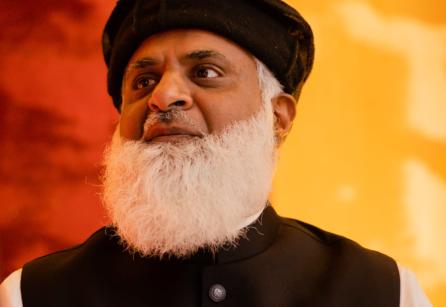News
Public Lecture By Basit Bilal Koshul
November 1, 2022

The Divinity School is pleased to announce a public lecture by Basit Bilal Koshul: Theology, Science, and the University: A Weberian Perspective
The lecture will be November 15, 2022, at 6pm in Swift Hall's 3rd floor Lecture Hall. A reception will follow.
Cosponsored by The Ethics Club and the Divinity Students Association
What place should theology have in the university? This lecture will offer the outlines of a Weberian perspective on this question—set against the backdrop of diametrically opposed answers by two noted theologians, Stanley Hauerwas and Gavin D’Costa, and offer a Weberian alternative to the “master/slave” dialectic that is implicit in their positions.
Max Weber notes that we are all “fated to live in an age alien to God and bereft of prophets.” Keeping in mind that the university is a place very alienated from God and very, very hostile to prophetic authority, the question emerges: What place should theology have in the university? This lecture will offer the outlines of a Weberian perspective on this question—set against the backdrop of diametrically opposed answers by two noted theologians. Stanley Hauerwas argues that acknowledging the “master” status of the secular sciences in the university, theology should consciously embrace “the position of Hegel’s slave.” Gavin D’Costa argues that theology should reclaims its rightful place as the “queen of the sciences” after freeing itself from captivity in “the Berlin-Babylonian university.” This lecture will offer a Weberian alternative to the “master/slave” dialectic that is implicit in the positions of Hauerwas and D’Costa.
Basit Bilal Koshul is a Professor in the School of Humanities and Social Sciences at the Lahore University of Management Sciences (LUMS). He joined LUMS in 2006 after teaching at Concordia College (Moorehead, MN) for four years. He earned his first PhD in 2003 from Drew University in Religion and Society (specializing in the Sociology of Religion) and the second in 2011 from the University of Virginia in Religious Studies (specializing in Theology, Ethics, Culture and Scriptural Reasoning). His areas of research include the philosophy of science, sociology of culture, philosophy of religion, philosophical theology and the contemporary Islam-West encounter. He is especially interested in integrating the insights of Muhammad Iqbal, Charles Peirce, and Max Weber. He publications include two co-edited volumes on Iqbal (one published by Iqbal Academy, Pakistan and the other by Edinburgh University Press), The Postmodern Significance of Max Weber’s Legacy: Disenchanting Disenchantment (Palgrave), and Max Weber and Charles Peirce: At the Crossroads of Science, Philosophy, and Culture (Lexington Press). His most recent publication is a chapter in The Routledge International Handbook on Max Weber titled “Max Weber’s Work and Our Times: The Sociological Significance of Weber’s Methodological Insights.” His upcoming publication is titled American Pragmatism, Modern Islamic Thought, and the Contemporary University (Edinburgh University Press).

